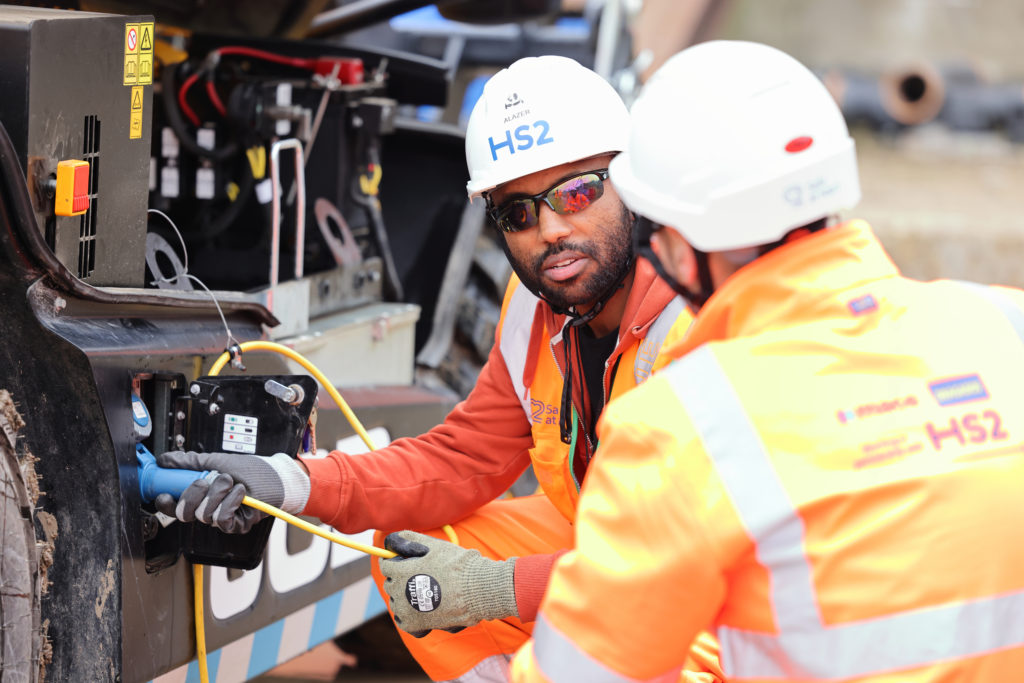Mace Dragados Joint Venture, the construction team building HS2’s new Euston station, is trialling a Hydrogen Fuel Cell, supplied by AFC Energy, to charge a fully electric JCB telehandler.
Dubbed the ‘H-Power Tower’, the unit is currently being used to charge the electric telehandler, and is an entirely emission free solution, reducing noise and capacity requirements from mains power. The H-Power Tower is also being used to charge lighting towers and a water pump on site.
The hydrogen fuel cell produces electricity by combining hydrogen and oxygen atoms, which react across an electrochemical cell to produce electricity, with water and heat being the only by-products. Charging electric construction machinery with zero-emission solutions at point of use provides a real step forward in decarbonising the activities of construction activities where mains supply is not possible.
“HS2 is championing the use of environmentally friendly energy solutions across the project, and this is another great example of just that,” said HS2’s head of environmental sciences, Andrea Davidson. “Reducing the reliance on mains sources of power while still moving away from diesel generated power is critical for the UKs low carbon future and trialling the use of hydrogen power to charge electric machines and for plant equipment as a whole will be a major step forward for the wider construction sector.”

HS2 has continually challenged its contractors to find new, innovative methods of construction and power supply that will result in lower emissions, be greener, and more environmentally friendly. This is just one of the many ways HS2 is reducing carbon emissions and air pollution typically projected in construction and accelerating HS2 sites to be diesel free by 2029.
“This is the second of three alternative-fuel cell generators we have brought to our Euston station site this year, making clear our commitment to supporting HS2 with its aspiration to help drive a low carbon future in the UK,” said Ben Wheeldon, programme director for Mace Dragados.
“By using the electricity generated by the AFC Energy’s unit to power a very visible piece of equipment that we use on site each and every day, we’re reminding our workforce of the need to put decarbonisation at the forefront of our industry’s thinking and encouraging them to bring their own innovative ideas to Euston.”
Adam Bond, chief executive officer at AFC Energy, added: “Our H-Power Tower has demonstrated that it is a reliable, and highly efficient alternative to fossil fuel-based generators. The H-Power Tower’s ability to support, HS2, Europe’s largest construction project with clean and consistent power is irrefutable proof of concept for our technology. Hydrogen has the power to revolutionise construction, helping the industry meet its decarbonisation goals and reach Net Zero.”
HS2 is also collaborating with the Construction Leadership Council to develop a Zero Diesel Site route map. The plan is currently out for consultation until 3rd December 2022 and the construction industry is being invited to provide feedback.
Image credit: HS2


